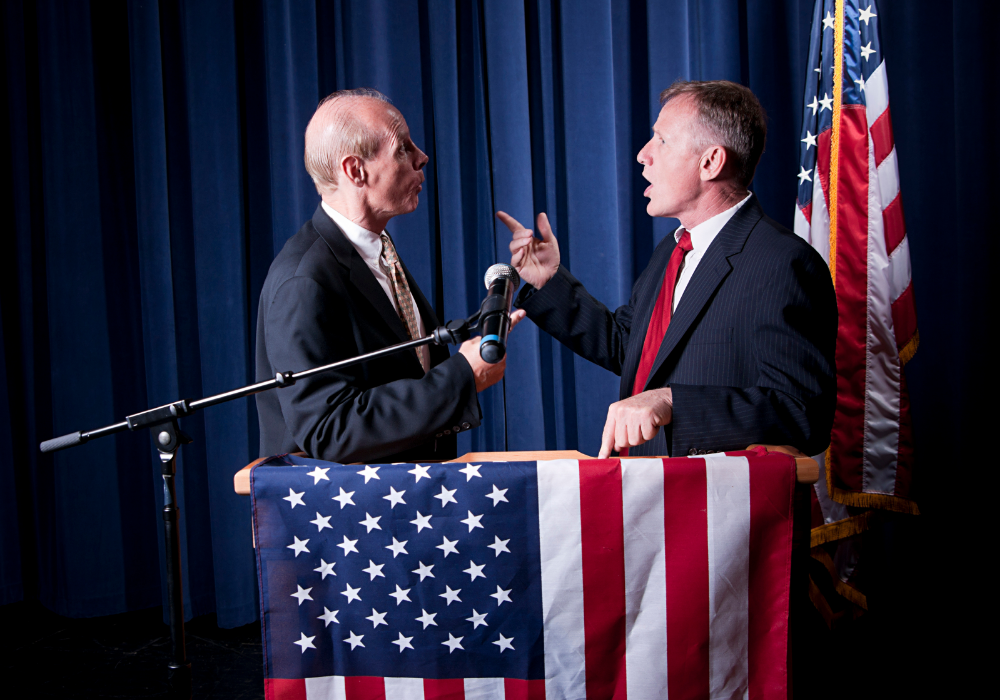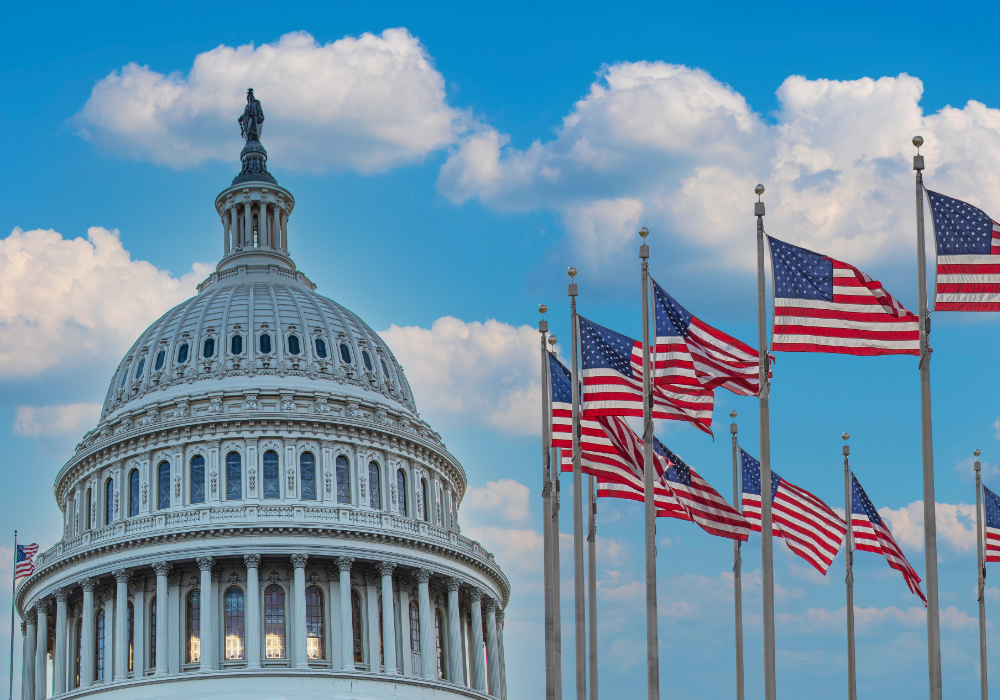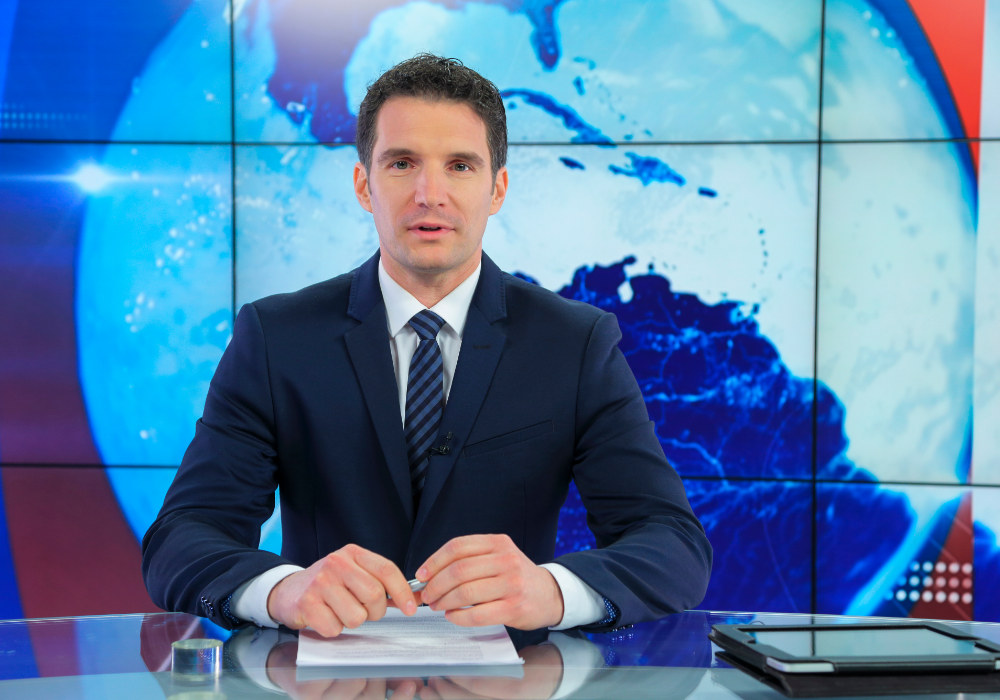Climate denial isn’t just ignorance—it’s identity, money, and power wrapped together.

It’s wild that climate change is still a political debate in 2025. The science has been solid for decades, the evidence is everywhere, and yet a big chunk of the political right still refuses to acknowledge the crisis—or does everything possible to downplay it. It’s not just about disbelief anymore. It’s about identity, loyalty, and systems that reward denial over change. For a lot of Republicans, shifting their stance would mean admitting they were wrong, challenging powerful allies, or stepping outside the party line—and that’s a hard sell.
This isn’t just frustrating for people who care about the planet. It’s dangerous. Every year of delay means more heat, more fires, more floods, and more lives upended. If you’ve ever wondered why so many on the right still won’t budge on climate—even as the world burns around them—it’s not just ignorance. It’s deeper than that, and a whole lot more calculated.
1. Admitting climate change is real would mean admitting the left was right.

For decades, climate change has been labeled a “liberal issue,” something championed by Democrats, activists, and scientists who were often mocked or dismissed by the right, report Aaron M. McCright et al. in a study published by the American Meteorological Society. So when the science started becoming undeniable, many Republicans were already in too deep. To accept it now would mean backtracking on years—sometimes entire careers—of denial or skepticism.
It’s not just about switching positions; it’s about swallowing political pride. And in today’s hyper-partisan climate, that kind of humility doesn’t win elections. For a lot of Republican leaders, staying consistent—even if it’s wrong—feels safer than flipping and risking backlash from their base.
There’s also fear of losing credibility with voters who’ve been fed climate doubt for years. So they keep doubling down, ignoring mounting evidence and acting like the debate is still open. It’s not about facts anymore—it’s about tribal loyalty and the fear of looking weak. Even when the world is literally on fire, politics keeps people clinging to outdated talking points. Truth takes a backseat when winning the narrative is more important than saving the planet.
2. Big oil money keeps climate denial alive and well.

Fossil fuel companies have spent decades shaping public opinion and political agendas with their wallets. And many Republican campaigns are still heavily funded by those very interests. It’s not always about personal belief—it’s about staying in office. When your biggest donors profit from drilling, fracking, and carbon emissions, calling for climate action becomes political suicide, according to a comprehensive report from Senator Sheldon Whitehouse for the Special Committee on Climate Crisis. Even speaking moderately about clean energy can trigger a loss of support. That’s how deep the influence runs. These companies don’t just fund campaigns—they also fund think tanks, research, and media spin designed to cast doubt on climate science. And that doubt trickles down into policy stances and public opinion.
It creates a feedback loop where politicians don’t act because their base doesn’t demand it, and the base doesn’t demand it because they’ve been misinformed. The result? A political party handcuffed by its financial bedfellows. Until campaign finance reform or a major shift in public demand breaks that link, fossil fuel money will keep muffling the truth. The planet burns, but the checks still clear.
3. Climate action challenges the right’s obsession with deregulation.

Republicans have built a political identity around “small government” and free-market ideals. So when climate change solutions involve government rules, emissions limits, or clean energy mandates, it sparks instant resistance, notes Joshua A. Basseches et al. in research published by the National Library of Medicine. Supporting these things feels like betraying core conservative values. In their minds, regulation equals restriction, and restriction equals loss of freedom. Even when the science says we need intervention, the ideology says, “Hands off.” This leads to blanket rejection of any policy that smells like government control—even if it’s good for public health or long-term survival.
The irony is that deregulation often helps polluters more than regular people. But that’s rarely part of the conversation. Instead, it becomes about protecting business, fighting “liberal overreach,” and clinging to the myth that the market will fix everything on its own. Wise governance requires balance, but when regulation becomes a dirty word, thoughtful solutions get buried. Climate denial becomes less about facts and more about defending an identity. And that identity leaves little room for compromise—even when the cost is a livable planet.
4. Climate denial has become a culture war weapon.

What started as a scientific issue has morphed into a full-blown cultural battleground. Climate change isn’t just about rising temperatures anymore—it’s about “us vs. them.” On the right, rejecting climate science has become a way to signal loyalty, mock liberals, and rally the base. It’s not about data—it’s about identity. Saying “I don’t buy the climate hype” gets cheers in conservative circles, not because people have studied the science, but because it feels like a stand against political correctness or elitism. It’s performative.
Once something becomes part of a culture war, logic flies out the window. Any mention of global warming or sustainability gets lumped in with socialism, cancel culture, or whatever the latest conservative boogeyman is. That makes real conversation almost impossible. To shift the narrative, you’d have to cool down the culture war—but outrage is more profitable than nuance. As long as climate change is framed as a liberal agenda, denial will remain a badge of honor for many on the right. It’s no longer just misinformation—it’s identity armor.
5. The conservative media machine keeps feeding the denial.

Right-wing media outlets have a huge influence on what conservative voters believe. And when those outlets consistently downplay climate change, mock environmentalists, and push misinformation, it shapes public opinion in powerful ways.
Many Republican voters aren’t reading peer-reviewed studies—they’re watching news personalities who frame climate science as hysteria. That narrative trickles up to politicians who mirror what they think their base wants to hear. It’s a cycle of reinforcement. If conservative media suddenly shifted toward climate truth, it could open the door for more honest political conversations.
But fear sells, outrage clicks, and simplifying complex issues into bite-sized arguments keeps viewers hooked. Climate change doesn’t fit neatly into soundbites, and that makes it easy to dismiss or distort. So instead of thoughtful reporting, we get sarcasm and skepticism. Over time, that shapes beliefs, especially in echo chambers where opposing views rarely break through. Politicians know this. They follow the media tone because their voters do too. As long as the headlines mock the science, the policies will lag behind it.
6. Evangelical influence fuels distrust in climate science.

A large portion of the Republican base is made up of evangelical Christians, many of whom are skeptical of science in general—especially when it challenges their worldview. For some, the idea that humans could damage God’s creation or that the Earth isn’t under divine protection clashes with their spiritual beliefs. Others see climate change as part of “God’s plan” or even the end times, making human intervention seem pointless or even arrogant. That kind of theological framework doesn’t leave much room for climate policy. Because evangelical voices hold major sway in Republican circles, many leaders are hesitant to contradict them.
They fear losing votes, support, or even being labeled anti-Christian. So they avoid the topic altogether or downplay it to stay in line. The result is a party that tiptoes around science to appease a powerful religious bloc. It’s not that faith and environmental responsibility can’t coexist—they absolutely can. But in this case, political strategy trumps spiritual stewardship. Until those internal tensions are addressed, science will keep losing out to belief.
7. Climate change feels too big and too distant to act on.

Let’s be honest—climate change is massive, overwhelming, and often feels far away. It’s not like flipping a switch or fixing a pothole. For many conservative voters and lawmakers, that scale makes it hard to engage. They’re focused on immediate issues—jobs, taxes, national security—not slow-burning environmental shifts. And because climate change doesn’t have a clear “villain” or quick fix, it gets pushed aside as abstract or exaggerated. Republicans often use this as justification: “It’s not urgent,” or “We’ll deal with it later.”
But kicking the can down the road has real consequences. Waiting only makes the problem more expensive, more dangerous, and harder to reverse. Wise leadership would address that, but short-term thinking wins elections, not long-term planning. Add to that the fact that climate impacts often hit hardest in communities outside their base, and there’s even less pressure to act. The less personal it feels, the easier it is to deny. Climate change is a slow-moving disaster—but political attention spans are short.
8. Many Republicans equate climate solutions with economic sacrifice.

One of the most common talking points on the right is that climate action kills jobs and tanks the economy. Renewable energy? Too expensive. Emissions limits? Bad for business. This fear-driven narrative frames every climate policy as a threat to prosperity, especially in industries tied to fossil fuels. But it’s not the whole story—clean energy jobs are booming, and sustainable practices can boost long-term growth. Still, the GOP clings to the idea that going green means going broke. It’s a message that sticks, especially in communities that rely on coal, oil, or manufacturing.
Leaders don’t want to be the ones blamed for economic shifts, so they resist change altogether. Wise policy would include a just transition, retraining workers and investing in new industries. But that requires vision, nuance, and political courage—three things in short supply. So instead of looking ahead, many on the right cling to outdated fears. Climate denial becomes a defense of economic status quo, not a serious policy stance.
9. GOP leaders fear backlash from their own base.

Many Republican politicians privately admit that climate change is real—but they stay quiet out of fear. Speaking up risks alienating core voters who’ve been fed skepticism for years. Even suggesting moderate solutions can trigger accusations of “going soft” or betraying conservative values.
That fear keeps lawmakers silent or vague, even when the science is staring them in the face. In today’s political climate, staying in line is safer than speaking truth. And the few Republicans who do break ranks on climate? They often face primary challengers, party pushback, or donor withdrawal. It’s not that these politicians don’t care—it’s that they’ve calculated the political risk and decided the cost is too high.
Courage gets punished more than cowardice. Until the base starts demanding change, most leaders won’t stick their necks out. Silence isn’t always ignorance—it’s often self-preservation. But while they protect their seats, the planet keeps heating up. That’s the cost of putting politics above reality.
10. Conspiracy thinking has replaced evidence for many on the right.

The rise of conspiracy culture in right-wing politics has made rational debate nearly impossible. Climate change gets lumped in with other “globalist agendas” or seen as a scam pushed by elites to control the population. Once someone buys into that mindset, facts don’t matter anymore. Every piece of evidence becomes “fake news,” every warning a power grab. And that paranoia spreads fast—fueled by social media, podcasts, and fringe influencers with huge followings.
Republican leaders often cater to this crowd instead of correcting them, afraid of losing support. So they let the noise drown out the science. Over time, distrust becomes doctrine. Saying “climate change is real” now feels, to some, like siding with the enemy. That’s how far the conversation has strayed. You’re not debating data anymore—you’re fighting a worldview built on suspicion. Until that changes, no amount of graphs or reports will break through. Denial has gone viral, and the truth can’t compete with clickbait.
11. Conservative masculinity rejects vulnerability—and climate action feels emotional.

There’s an unspoken idea in many conservative circles that caring too much about the planet is “soft.” Environmental concern is framed as emotional, idealistic, even weak. And in a culture where masculinity is tied to toughness, dominance, and stoicism, that doesn’t land well. Climate action requires empathy—for future generations, for other species, for people you’ll never meet. It asks leaders to admit we’re vulnerable and need to change course. That kind of message clashes hard with a political identity built around strength and control.
So instead, the right mocks climate concern as hysterical or overblown. You hear terms like “climate cult” or “eco-woke” thrown around to discredit it. The result is a cultural posture that treats caring as cringe. But wise strength isn’t about pretending everything’s fine—it’s about responding to real threats with courage. Until conservative masculinity evolves to include emotional intelligence, many will keep scoffing at solutions that require it. The planet doesn’t need macho—it needs mindful.
12. Climate denial has been baked into the GOP’s brand.

At this point, climate skepticism isn’t just a policy position—it’s part of the Republican identity. For years, denying or downplaying the climate crisis has been a reliable applause line at rallies, a quick way to score points with the base. It became part of the platform, the messaging, the media spin—all reinforcing each other in a tight feedback loop. That branding is hard to shake. Shifting now would require a massive rebranding effort, and many party leaders just aren’t willing to take that on. They’d rather stay consistent, even if that consistency is rooted in misinformation.
The fear is that changing direction will confuse voters or make the party seem unstable. So instead of adjusting with the science, the GOP has dug in deeper. It’s no longer about what’s true—it’s about what fits the image. And unfortunately, that image still includes rejecting climate action as a core stance. Until that changes, denial won’t just linger—it’ll be defended like tradition.